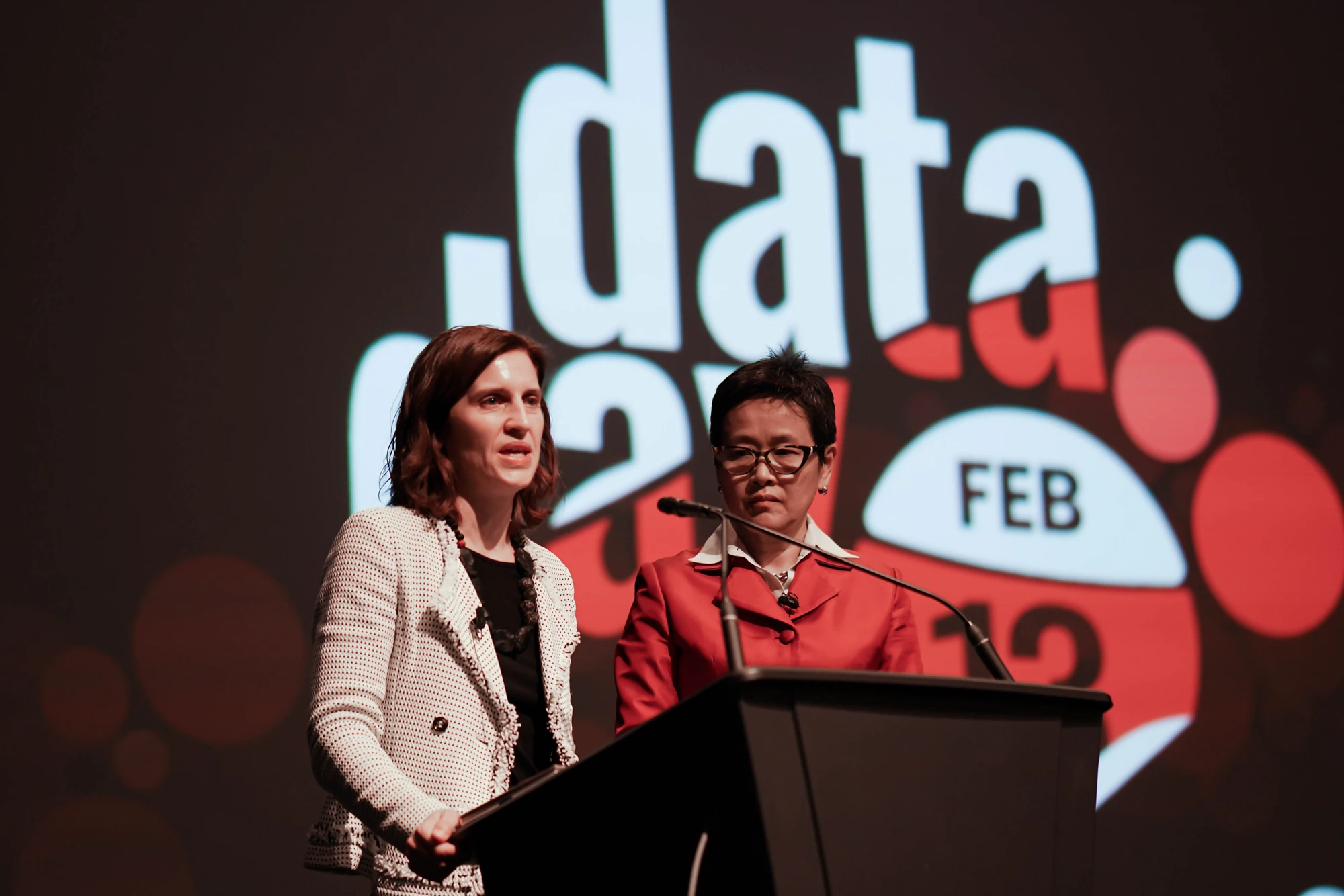
The World Bank’s inaugural Data Day had something for everyone and was a huge win for data: more than 1,000 participants voted with their feet and their time to show their commitment for data—and that’s a commitment we share. Here’s what we learned from our first Data Day:
More and better data coverage
We know that it’s impossible to monitor, let alone achieve, the Sustainable Development Goals without high-quality data from low-income countries. However, scarce and poor-quality data are a critical impediment to evidence-based policymaking and monitoring, particularly in those countries where information and policy focus are most needed. Overall, there is a need for comprehensive data to deepen the understanding of how poverty affects individuals and to assess how social programs can be better tailored to meet their needs. Countries should have the right policy environment for evidence-based policy making and monitoring, including the production and use of development data.
“A data point is actually a human story. The reason we are obsessed with good data is because when we have it, it informs our decisions and the decisions our clients make,” said World Bank Group Interim President Kristalina Georgieva in her opening remarks. “The World Bank prides itself on being an evidence-based institution. We create, share, and use data so that citizens and policymakers can make better decisions.”
That’s why the Bank has made a commitment to help the world’s poorest countries improve the frequency of data collection to one household survey every three years. We’re seeing progress on that front: between 2015 and 2018, 41 countries in Sub-Saharan Africa conducted household surveys, and between 2018 and 2020, approximately 34 countries have one planned. However, much more data is needed.
Some of the needed data are particular to specific thematic areas where good data is particularly scarce – such as agricultural statistics. Without high-quality data on agricultural production, inputs, land area, soil fertility, and so on, countries won’t have the information they need to create policies to support many of their poorest citizens. To address this, Kristalina announced the new 50x30 Data to End Hunger initiative, which brings together donors and major international organizations with a pledge to put $500 million toward improving agricultural statistics in 50 countries by 2030, in order to end hunger worldwide.
Building on these initiatives and the momentum generated by Data Day, the World Bank is now pushing for a comprehensive “Data for Policy” initiative, which will support the production and use of a larger set of core statistics crucial for well-functioning national systems of statistics and for evidence-based policymaking and monitoring. The package will include household surveys (and population censuses as needed), agricultural data, enterprise surveys (and establishment censuses as needed), price data, and administrative records. “The Data for Policy initiative will help enhance the capacity of governments to utilize and analyze data and also help the World Bank to support them with evidence-based policy making,” said Ceyla Pazarbasioglu, World Bank Vice President for Equitable Growth, Finance and Institutions.
Achieving the perfect balance between traditional and big data
The data revolution has spawned newer sources of data and more frequent data. However, the key to efficiently harnessing this newfound power depends on how this data can be used and interpreted. There needs to be a happy marriage between traditional data and big data.
While the production and use of traditional data is frequently questions-driven (i.e. we ask a question and then go out to collect the data needed to answer it), the availability of big data has opened the possibility to think about new questions. In fact, we’re already seeing value from various types of data, including satellite imagery, geospatial data, network data (like LinkedIn and Facebook), transactional/price data, and text mining. However, the challenge is to see beyond the hype and unlock the ways to use this new data to answer critical development questions, not just any “new” question.
“Big data could be a game-changer for development. New technologies such as Digital IDs that are available to governments will result in the collection of unprecedented amount of information. That creates enormous opportunities and risks,” said Pinelopi Goldberg, World Bank Group Chief Economist, in her keynote address. “The World Bank can play a crucial role in making sure that this technology is used to improve welfare and reduce poverty and is not misused.”
Addressing privacy concerns
One of the main issues in bringing together traditional data with big data is privacy. While security will be a perennial concern, this is an increasingly urgent task, as the world is still far away from having the necessary data governance regulations in place. Development needs for information should be balanced against people’s right to control. Jeni Tennison, CEO of the Open Data Institute, and Gus Hosein, Executive Director of Privacy International, who joined us for a discussion about data privacy and open data, talked about how responsible data protection and open data can mutually co-exist. Open data is a first step in push for transparency, but the agenda needs to include open code and open knowledge.
Next steps: from Data Day to a Data Decade
As Data Day came to a close, we were energized by the passion shown by the audience as well as the experts who came from both within and outside the World Bank. Some of the prominent speakers from outside the World Bank that we heard from included Emily Pryor, Executive Director, Data2X; Simon Rogers, Google's Data Editor; and Máximo Torero, Assistant Director General, Economic & Social Development Department, Food and Agriculture Organization.
Looking ahead, keep an eye on the Data Blog, where many of our excellent lightning talk participants will share insights and next steps based on the impact they’re seeing on the ground. Our hope is that this fledgling, but very successful Data Day can spur people involved in the data agenda to continue the fight and turn it into a “Data Decade.”




Join the Conversation